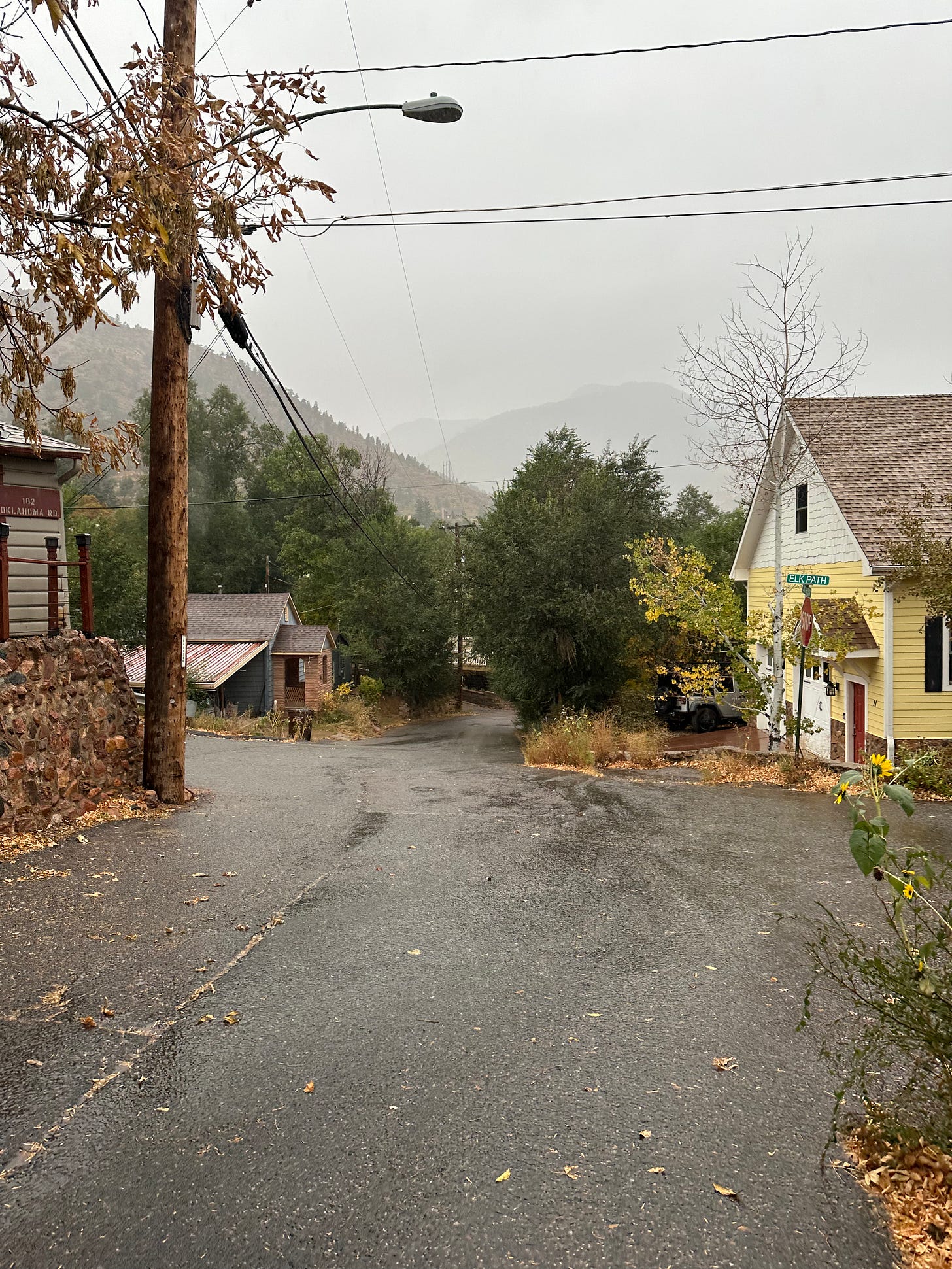Monthly, I meet with a small group of women therapists for a group I call the “Networking and Consultation Group.” The idea was born after multiple well-intended invitations to network, “grab a coffee,” or schedule a quick virtual meeting, for which my highly sensitive and introverted soul simply couldn’t muster the effort.
“I need time structure and a deeper-focused discussion, then I can do it,” I said to myself. So I created it. The group met as a summer series and was such a hit that a wonderful colleague offered to facilitate with me if we continued. Now, we have a beautiful group of highly reflective therapists meeting monthly and sharing the gift of facilitation.
It’s a beautiful group that came from my “I can’t.”
We met last week and discussed burnout, its relationship to our identities, themes around 'duty' and responsibility in our field, and ultimately, the impact of overextending ourselves for our soul-centered work. It was a rich, necessary conversation, touching on how easily we can lose sight of our own limits in the service of others. Hearing these reflections from the group sparked something within me—it made me realize that my own response to burnout has evolved over time.
I used to feel driven to push through, to find a way around my limitations in order to meet every demand. But what I’ve come to understand, and what I shared with the group, is that my main strategy for preventing burnout has become quite the opposite. It has been to reclaim the phrase “I can’t do that.”
“I can’t do that” used to be a phrase that invited me to problem solve how I could figure out how to do something. And I think there is space for that to exist. The questions “How can I do this?” or “What do I need in order to be able to do this?” are notions I call upon often, especially when I am working on something physical.
What I mean by this phrase as a means to prevent burnout, is that “I can’t do that” has become a complete-enough sentence to help me maintain the perimeter around myself. As therapists, empaths, and sensitives, we are often expected to blow past our own capacity in order to serve, love, heal, care for, and support, regardless of the cost to us.
Maybe you’re thinking “Well you could do it, but you aren’t willing.” Yes. And my unwillingness is something I trust within myself. I trust my unwillingness to signal to me about my actual capacity. If I am unwilling, that signals something to me. It means I can't without a significant cost to my peace or well-being.
Some things I can’t do without compromising myself:
See clients that aren’t a good fit for me- we won’t get anywhere, and they deserve the right fit. When I don't see clients who aren't a good fit, I honor both their needs and my own capacity. They deserve someone who is the right match, just as I deserve to work within my strengths.
Work past my own time limits. I can’t work earlier or later in the day than I know is right for me. When I do, I’m not honoring my clients’ commitment to their growth, and I’m not honoring my own internal clock.
Maintain more clients than I should have on my caseload at any given time. When I have too many, everyone gets less-including me.
Be “a therapist” to anyone who isn’t my actual client. This scenario isn’t good for either of us.
I also can’t be out past 9:00 pm, that is unrelated to my work, but I just want everyone to know.
As we spoke about this in our group, there was such consensus on the idea of reclaiming our own limits. It surprised me a bit to hear that so many of us have blown past our own capacity in the name of appearing competent, fighting imposter syndrome, or just denying our own nature. This is so interesting to me because most of us soft and heart-forward folks came to this work because we needed a home for all this love we have to pour out. But, if we don’t do so through the perimeters of compassion, we deplete. And I caution you from thinking this idea of burnout and capacity is only for therapists. It is for you too. Whether you work for the utility company or the court system, you run a non-profit, you’re in the medical field, a parent, a student, a coach, a caregiver, a barista, or a librarian.
“I can’t do that” is yours to employ too. I know there are times when we won’t be able to say “no” without some consequences that can really rock our own security, financially or otherwise. I see that, I understand it, and I encourage you to evaluate how sustainable it is to remain in places where you cannot exercise your own limitations.
“I can’t do that” has opened me up to wholehearted “I’d absolutely love to do that!” And in that way, our work, our capacity, and our energies can become more aligned.
Where are your “I can’t do that”s and where are your “I’d absolutely love to do that”s?
This space here that we share together is another place I found because I carved out enough capacity for my writer's heart, and every week it becomes clearer and clearer to me what an act of self-love that has been. So, thank you, as always, for meeting me here.






I just love you. I am so inspired by you and grateful to be in your aura once again. On a morning of heavy reflection this post is resonating quite deeply. Thank you.